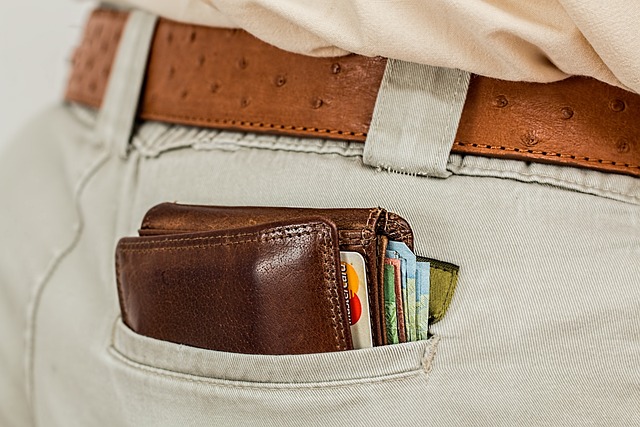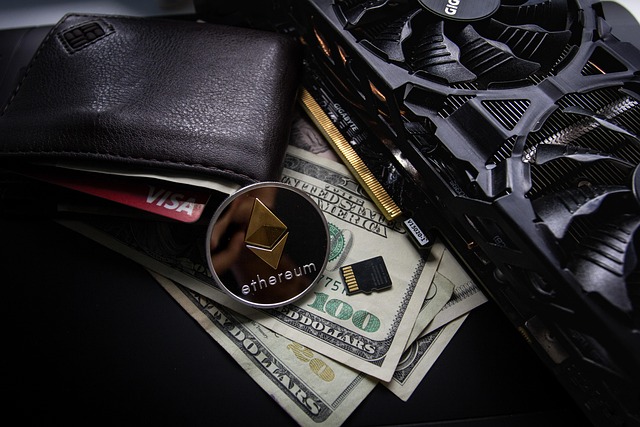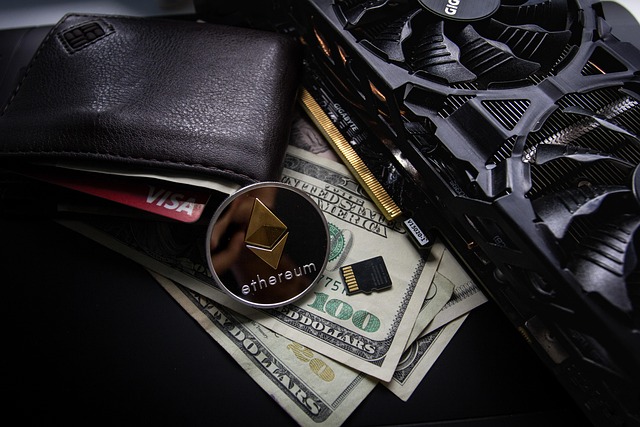Unlocking the Potential of Crypto Wallets
Crypto wallets have become an essential tool for anyone looking to engage with the cryptocurrency market. With the rise of digital currencies, understanding how these wallets function and how to choose the right one is crucial for both novices and experienced traders alike. This comprehensive guide will delve into the various types of crypto wallets, their features, and how they can impact your investment strategy.

What is a Crypto Wallet?
A crypto wallet is a digital tool that allows users to store, send, and receive cryptocurrencies. Unlike traditional wallets that hold physical money, crypto wallets store the public and private keys necessary to manage your digital assets. They do not actually hold the cryptocurrency itself; instead, they facilitate transactions on the blockchain. When a transaction occurs, the wallet uses these keys to interact with the blockchain, confirming ownership and transferring assets securely. Understanding the mechanics of crypto wallets is critical as it underpins the security and accessibility of your cryptocurrency holdings. Furthermore, wallets can interact with decentralized applications (dApps), enabling users to leverage their assets in various decentralized finance (DeFi) platforms. Additionally, the seamless integration of wallets with other financial services is becoming increasingly common, offering users a more comprehensive financial toolkit.
Types of Crypto Wallets
Crypto wallets can be categorized into two main types: hot wallets and cold wallets. Each type has its distinct features and use cases, which cater to different user needs. Understanding these categories is crucial for aligning your wallet choice with your trading habits and security preferences.
Hot Wallets
Hot wallets are connected to the internet and provide quick access to your crypto assets. They are ideal for frequent trading or transactions, but they come with increased security risks. Examples include:
- Web Wallets: Accessed through a browser, these wallets are hosted by third-party services. While convenient, they can be vulnerable to hacks, making it essential to choose reputable providers with strong security protocols. Ensure you look for features like encrypted connections (HTTPS) and user reviews that emphasize security. Many web wallets also offer features like price alerts and integrated exchanges for added convenience. Moreover, they might provide built-in tools for managing your portfolio efficiently.
- Mobile Wallets: Apps downloaded on smartphones that allow users to manage their crypto on the go. They offer a balance between security and usability, often incorporating features such as biometric authentication for added protection. Consider wallets that allow for easy integration with exchanges, provide built-in trading features, and support QR code scanning for seamless transactions. Furthermore, some mobile wallets include functionalities for tracking spending patterns and market trends.
- Desktop Wallets: Installed on a computer, these wallets offer more security than web wallets but are still connected to the internet. They often provide advanced features, such as hardware integration and enhanced encryption. Look for wallets that allow you to control your private keys, ensuring you have full ownership of your assets. Desktop wallets can also provide tools for transaction tracking and portfolio management, making them suitable for both casual and active traders.
Cold Wallets
Cold wallets are offline storage options, making them more secure against online threats. They are recommended for long-term storage of cryptocurrencies. Types include:
- Hardware Wallets: Physical devices that store your keys offline, such as Ledger and Trezor. They provide robust security but require careful handling, including secure backups and safe storage to prevent loss. It's essential to purchase these devices directly from manufacturers to avoid tampered products. Some hardware wallets also support multiple cryptocurrencies, allowing you to consolidate your holdings in one secure device. Additionally, users should familiarize themselves with the recovery process in case the hardware wallet is lost or damaged.
- Paper Wallets: Printed documents containing your keys. While extremely secure from online attacks, they are susceptible to physical damage, theft, or loss. It’s crucial to create these in a secure environment and store them safely. Consider using a fireproof safe for storage and avoid public Wi-Fi networks when generating them. Additionally, ensure you have a clear plan for the secure destruction of any unnecessary copies to prevent unauthorized access.
Choosing the Right Wallet
Selecting the right crypto wallet depends on your specific needs, including security, accessibility, and the types of cryptocurrencies you hold. Here are some factors to consider:
- Security Features: Look for wallets that offer two-factor authentication, encryption, and backup options. Ensure that the wallet has a good reputation for security and regular updates. Research the wallet's history and any past security breaches to understand its reliability. Additionally, consider wallets that provide multi-signature capabilities for enhanced security, especially for managing larger amounts of cryptocurrency.
- Supported Cryptocurrencies: Ensure that the wallet supports the coins you plan to hold, as not all wallets cater to every cryptocurrency. For users holding diverse assets, a multi-currency wallet can be advantageous. Check for compatibility with emerging tokens and new blockchain projects as well, as this can affect your future investment opportunities.
- User Experience: A user-friendly interface can make managing your crypto easier, especially for beginners. Test the wallet's interface before committing, and check for features like transaction tracking and easy navigation. Some wallets also offer educational resources to help users understand crypto management better, fostering a more informed user base.
- Community Feedback: Research reviews and testimonials from other users to gauge reliability and support. Look for community forums or groups discussing their experiences with specific wallets to get insights into their customer service and functionality. Engaging with online communities can also help you stay informed about potential issues and updates, ensuring that you choose a wallet that aligns with user expectations.
- Fees: Some wallets charge fees for transactions, conversions, or withdrawals. Understanding the fee structure can help you make cost-effective choices, especially if you plan to conduct frequent transactions. Evaluate the overall cost-effectiveness of using the wallet in relation to your trading frequency and investment strategy, as hidden fees can significantly impact returns.

How to Use a Crypto Wallet
Using a crypto wallet typically involves a few basic steps:
- Download or create an account on the wallet of your choice. Ensure that you are using the official website or app to avoid phishing scams.
- Secure your wallet with a strong password and enable any additional security measures, such as biometric verification or two-factor authentication. Consider using a unique password manager for enhanced security.
- Add cryptocurrency to your wallet by purchasing from an exchange or transferring from another wallet. Be aware of the transaction fees involved, and choose the right time for transfers to minimize costs. Additionally, familiarize yourself with the wallet's deposit and withdrawal processes to ensure smooth transactions.
- Manage your assets, keeping track of transactions and balances as needed. Regularly review your security settings and back up your wallet information. Use analytical tools to track your portfolio's performance over time and stay informed about market trends that may affect your investments.
Popular Crypto Wallets
Here are some popular crypto wallets that cater to different needs:
- Binance Wallet: This wallet is integrated with the Binance exchange, allowing users to trade easily. You can sign up using this referral link. It offers a variety of features, including staking options and advanced trading tools. Additionally, the Binance wallet supports a wide range of cryptocurrencies, making it versatile for diverse portfolios.
- MEXC Wallet: This platform offers a user-friendly interface and supports a wide range of cryptocurrencies. You can register via this link. MEXC Wallet also includes features such as market analysis tools and price alerts, enabling users to make informed trading decisions.
- Bitget Wallet: Known for its trading features and referral programs, this wallet is popular among active traders. Start your journey with this referral link. Bitget Wallet provides leverage trading and other advanced features for experienced users, making it suitable for those seeking sophisticated trading strategies.
- Bybit Wallet: Offers robust trading features alongside its wallet capabilities, making it suitable for both trading and storage. You can join through this invitation link. Bybit is known for its user-friendly interface and extensive resources for both beginners and advanced traders, including tutorials and customer support.
Security Measures for Your Wallet
Security is paramount when it comes to managing your cryptocurrencies. Here are some essential security measures to keep in mind:
- Regular Updates: Keep your wallet software updated to protect against vulnerabilities. Many updates also include security enhancements. Set up notifications to stay informed about any available updates and consider enabling automatic updates where possible to ensure you're always protected.
- Backup: Regularly back up your wallet information to recover your assets if needed. Use multiple backup methods, such as cloud storage and physical copies, ensuring that your backups are encrypted for added security. Keep these backups in secure locations and test them periodically to ensure their integrity and accessibility.
- Private Key Management: Never share your private keys and store them securely offline. Consider using a password manager for added security, and be cautious of sharing sensitive information on social media or forums. If possible, utilize a hardware wallet for key management to enhance security further, especially for larger holdings.
- Beware of Phishing: Always verify the authenticity of websites and links before entering sensitive information. Use bookmarks for frequently visited sites to avoid scams, and enable security alerts for unauthorized access attempts. Educate yourself about common phishing tactics to stay vigilant, and consider using a dedicated security tool to detect threats.
- Cold Storage: For long-term holdings, consider transferring assets to a cold wallet. This significantly reduces the risk of online theft. Additionally, establish a secure process for retrieving your assets from cold storage when necessary. Plan for the eventual recovery of your assets in case of loss or damage to your cold storage method, ensuring that you have contingency measures in place.

The Future of Crypto Wallets
As the cryptocurrency landscape continues to evolve, so too will the technology behind crypto wallets. Innovations such as biometric security, multi-signature wallets, and integration with decentralized finance (DeFi) protocols are likely to become more prevalent. Additionally, the emergence of smart contracts and tokenization may lead to wallets that offer more functionalities, allowing users to manage not only cryptocurrencies but also a variety of digital assets. Staying informed about these developments will be crucial for any crypto investor. Consider subscribing to industry newsletters and participating in webinars to stay ahead of trends. Furthermore, the advent of regulatory frameworks may also shape how wallets operate, emphasizing the need for compliance and transparency in wallet services. Users may increasingly seek wallets that offer not only functionality but also compliance with local regulations, influencing their choice of wallet providers.
Conclusion
Crypto wallets are a vital component of the cryptocurrency ecosystem, providing the necessary tools to manage your digital assets securely. By understanding the types of wallets available and how to choose one that fits your needs, you can take full advantage of the opportunities in the crypto market. Whether you're a seasoned investor or just starting, investing time in learning about crypto wallets is a step towards successful crypto management.
For additional resources, consider checking out reputable sources like CoinDesk and CoinTelegraph for the latest updates in the crypto world. Additionally, forums like Reddit's CryptoCurrency subreddit can provide community insights and peer support. Engaging with knowledgeable communities can enhance your understanding and help you navigate the evolving crypto landscape. Also, participating in local crypto meetups and workshops can deepen your knowledge and expand your network within the cryptocurrency community.
FAQs About Crypto Wallets
1. What is the difference between a hot wallet and a cold wallet?
A hot wallet is connected to the internet, making it convenient for frequent transactions but more vulnerable to hacks. In contrast, a cold wallet is stored offline, providing enhanced security against online threats, making it ideal for long-term storage. Users should assess their trading frequency and security needs to determine the best wallet type for their use case.
2. Can I use multiple wallets?
Yes, many users opt for multiple wallets to enhance security and manage different types of cryptocurrencies. For instance, you might use a hot wallet for daily transactions and a cold wallet for long-term savings. This strategy can help mitigate risks associated with potential wallet hacks or platform failures.
3. What happens if I lose access to my wallet?
If you lose access to your wallet and do not have a backup of your private keys or recovery phrases, you may permanently lose access to your cryptocurrencies. It's crucial to back up your wallet information and store it securely. Many wallets offer recovery options, so familiarize yourself with these processes when setting up your wallet.
4. Are crypto wallets free to use?
While many crypto wallets are free to download and use, some may charge transaction fees, withdrawal fees, or fees for additional features. It's important to read the fee structure before choosing a wallet, as costs can vary widely between providers and can impact your overall trading profitability.
5. How can I enhance the security of my crypto wallet?
You can enhance security by enabling two-factor authentication, using strong and unique passwords, regularly updating your wallet software, backing up your wallet information, and using cold storage for long-term holdings. Additionally, consider employing security practices such as monitoring your accounts for suspicious activities and being cautious about sharing personal information online.

Best Practices for Crypto Wallet Management
To effectively manage your crypto wallet and enhance the security of your digital assets, consider implementing these best practices:
- Educate Yourself: Stay informed about the latest developments in cryptocurrency and blockchain technology. Understanding the underlying principles can help you make more informed decisions regarding wallet management and security.
- Regular Monitoring: Keep an eye on your wallet transactions and balances. Regularly reviewing your accounts can help you quickly identify any unauthorized activities and take action if necessary. Use alert features offered by your wallet or exchange for real-time notifications on transactions.
- Diversify Your Assets: Consider diversifying your cryptocurrency holdings across different wallets and platforms. This can help mitigate risks associated with hacks or platform failures and provide flexibility in managing your investments.
- Utilize Multi-Signature Wallets: If you are managing significant amounts of cryptocurrency, consider using multi-signature wallets, which require multiple private keys to authorize a transaction, adding an additional layer of security. This method is particularly useful for joint accounts or organizations managing funds.
- Stay Aware of Scams: The crypto space is rife with scams and frauds. Stay vigilant and always double-check the authenticity of any investment opportunities or wallet services you encounter. Follow reputable news sources and community channels for updates on known scams.
Conclusion
In conclusion, understanding and managing crypto wallets is crucial for anyone involved in the cryptocurrency market. By following best practices and staying informed, you can effectively protect your digital assets and maximize your investment potential. Whether you are a beginner or an experienced trader, investing time in learning about crypto wallets will contribute significantly to your success in the crypto landscape. As the technology and regulatory environment continue to evolve, keeping abreast of changes will empower you to make informed decisions and adapt your strategy accordingly.